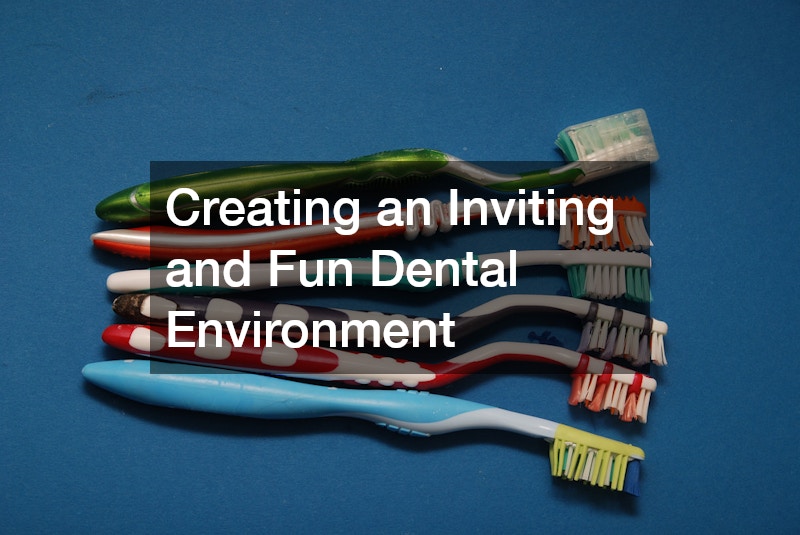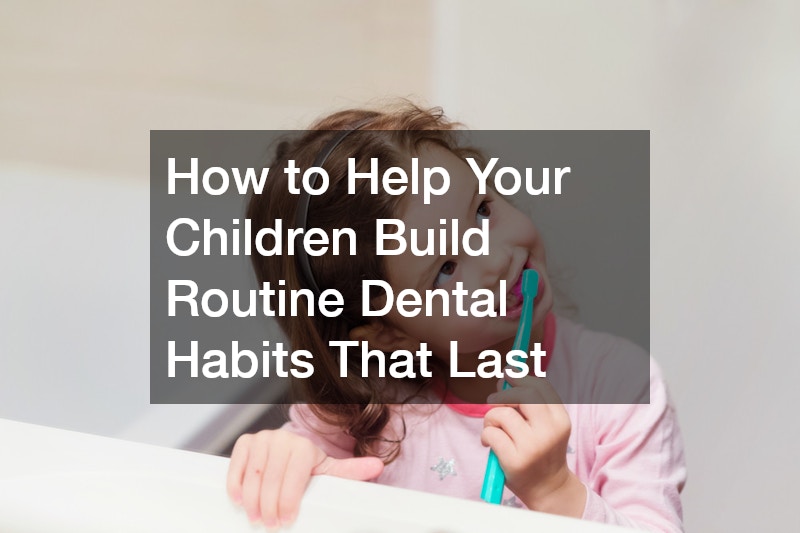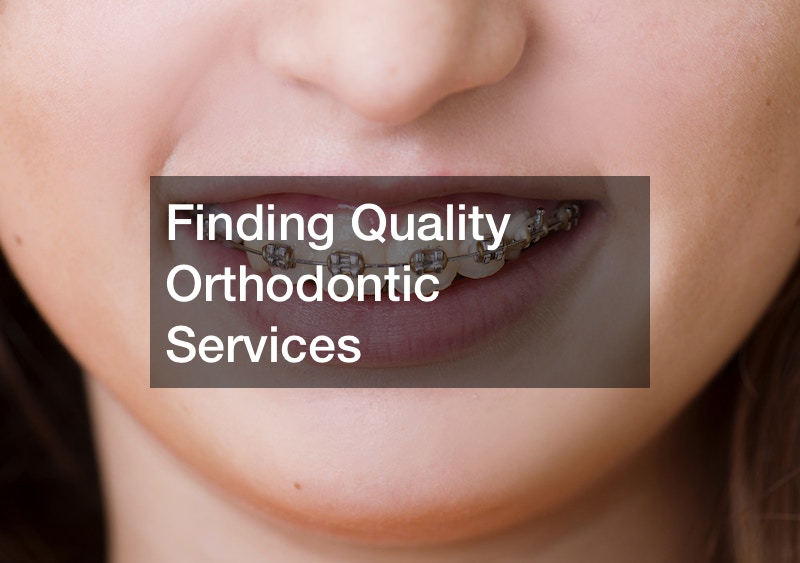Establishing routine dental habits in children is critical for their long-term oral health. It lays the foundation for a healthy smile, minimizes the risk of cavities, and reduces the need for complex dental treatments down the line. Moreover, developing positive dental hygiene habits early on helps instill a sense of responsibility in children, encouraging them to take charge of their own health as they grow older.
As children grow, they will inevitably encounter various challenges and distractions that may steer them away from maintaining good dental hygiene. In a world filled with sugary snacks, media influences, and fast-paced lifestyles, it is vital to provide guidance and tools that will help them stay on track. Parents play a pivotal role in modeling these habits and offering reminders, fostering an environment where regular dental practices become second nature.
In this article, we will explore effective strategies to help your children build regular dental habits. From understanding the significance of regular dental check-ups to establishing brushing and flossing routines, we’ll provide actionable tips and insights. By empowering your children with knowledge and practical skills, you can equip them to prioritize their dental health for years to come.

Understanding the Importance of Routine Dental Care
Routine dental care is more than just a series of appointments or daily tasks; it is fundamental to maintaining a healthy lifestyle. Good dental hygiene prevents tooth decay, gum disease, and other oral health issues that can cause pain and discomfort. Teaching children the importance of regular dental care helps them understand that their oral health is linked to their overall health.
Moreover, a visit to the dentist shouldn’t be viewed merely as a chore. Creating a positive association with the dentist, whether it’s an experienced dentist or a family-friendly local dentist, can make a significant difference in how children perceive oral health. When kids understand that their dental appointments are preventative and part of their routine dental care, it demystifies the experience and makes it less intimidating.
Also, regular dental check-ups are crucial for early detection of potential issues. Regular dental services not only keep teeth clean but also allow for professional assessments that can prevent future problems. By building regular dental habits, children become accustomed to visiting the dentist regularly, setting the stage for a lifetime of healthy smiles.
Setting Up a Strong Foundation at Home
The first step in establishing regular dental habits is to create a daily dental care regimen at home. Parents should implement a structured routine that includes brushing teeth twice a day and flossing. Involving children in this process makes it a fun activity rather than a chore, helping them to better understand the significance of maintaining their oral health.
When setting up this routine dental care at home, consider using visual aids. For instance, colorful charts or stickers can track progress and motivate kids to adhere to their dental hygiene practice. This not only reinforces their commitment to regular dental habits but also provides a sense of accomplishment as they reach milestones.
Another effective strategy is to select the right dental products that appeal to children. From flavored toothpaste to fun and colorful toothbrushes, making dental hygiene enjoyable is key to encouraging kids to practice regular dental care without reluctance. If your child is interested in more advanced options such as an invisalign service for alignment issues, discussing this with a great dentist can empower your child with knowledge about their dental health.

Making Dental Visits a Positive Experience
Dental appointments can instill fear in children, but parents can help transform these visits into positive experiences. Booking an appointment with a great dentist who specializes in family dentistry can make a world of difference. These professionals know how to engage with children, making the experience less daunting and more enjoyable.
Preparation is key when heading to a dentist appointment. Talk to your children about what they can expect during their visit, such as teeth cleaning and possibly a tooth examination. Providing positive reinforcement, like being able to choose a small toy afterward, can help ease any anxiety and make them look forward to regular dental visits in the future.
Additionally, consider introducing children to dental hygienists during their visits. Kids dentists often have the experience to connect with children at their level, explaining the process in ways they can understand. Building familiarity with the dental team cultivates trust, making children feel safe and comfortable during their routine dental care.
Educating Children on Oral Health
Education plays a critical role in helping children understand the importance of regular dental care. Teaching them about the impact of sugary foods on their teeth, and how brushing and flossing can counteract these effects, empowers kids to make better choices. When kids understand the consequences of poor dental hygiene, they’re more likely to take their regular dental practices seriously.
You can make oral health education interactive and fun. Use books, games, and cartoons that focus on dental hygiene to engage them, or watch educational videos together that explain how to take care of their teeth. Such activities reinforce the importance of routine dental habits and ensure they see oral health as an important part of their lives.
Encouraging children to ask questions during their dental visits also fosters curiosity and understanding. When they can engage with their local dentist about their dental health, it reinforces their learning and establishes a strong knowledge base. This engagement can help demystify dental treatments now and in the future, ensuring they are comfortable with procedures such as teeth whitening or cosmetic dental care when appropriate.

Creating an Inviting and Fun Dental Environment
Creating a fun environment around dental care helps reinforce the importance of regular dental habits. Make brushing fun with a timer or music to encourage kids to brush for the full two minutes. Consider using a reward system for maintaining their routine, such as earning points towards a family outing or a fun activity when they consistently follow their daily dental care regimen.
Additionally, involving children in the selection of their dental care products can make them feel more in control. Let them choose their toothbrush, toothpaste flavors, or even some fun flossers that cater to their interests. This “ownership” can help them take their dental care seriously and commit to a more routine dental practice.
Moreover, consider organizing themed family nights focused on dental health. Show them how fun it can be to care for their teeth with exciting activities that incorporate dental lessons, such as cooking healthy snacks or designing dental care kits. The more positive associations children make with dental habits, the more likely they will continue these practices into adulthood.
Monitoring and Encouraging Progress
As children begin their journey towards regular dental maintenance, monitoring their progress is crucial. Parents can set aside regular check-ins to discuss how well they’re adhering to their dental practices. This could involve acknowledging their accomplishments, providing gentle reminders, or modifying routines as necessary to keep them engaged.
Creating a tracking chart or app can help children visualize their progress as they complete daily dental tasks. This tangible reward system encourages them to stay dedicated to their routine dental habits, fostering a sense of accountability. Parents can celebrate milestones, such as the successful completion of a month of diligent brushing and flossing, reinforcing positive behaviors.
Communicating with your child’s dentist about their dental hygiene can also provide valuable insights. Regular updates can help the dentist understand areas where your children excel and where they may need additional focus during regular dental visits. This collaboration ensures that parents and dental professionals work together to support the children’s oral health journey.

Navigating Dental Challenges Through Different Life Stages
As children grow, their dental needs evolve—and so should the strategies used to support their routine dental habits. Toddlers may resist brushing due to unfamiliarity or discomfort, while tweens and teens might skip it due to busy schedules or a sense of independence. Understanding these developmental shifts is essential to adapting your approach and staying proactive in encouraging consistent dental care.
During early childhood, it’s helpful to focus on forming habits through routine and repetition. Gentle guidance, supervised brushing, and story-based learning can go a long way. As children enter school age, incorporating responsibility and education becomes important. Letting them take more ownership while still offering support helps bridge the gap between dependence and autonomy.
For older kids and teens, tie dental care to what matters to them—confidence, appearance, and self-expression. Discuss how a healthy smile contributes to social interactions and self-image. Introducing them to services like Invisalign or cosmetic dental options—when appropriate—can show them that dental care is both practical and empowering. Always keep lines of communication open so they feel comfortable discussing their concerns, questions, or hesitations about dental visits or oral health routines.
Partnering with Your Child’s Dentist for Long-Term Success
Your child’s dentist is more than just a provider of care—they’re a partner in helping you maintain your child’s dental health. Establishing a strong relationship between your family and a trusted local dentist allows for ongoing support, guidance, and personalized recommendations that adapt to your child’s changing needs.
Make the most of regular dental visits by asking the dentist for tips specific to your child’s habits or challenges. Whether it’s finding the right toothbrush, improving flossing technique, or discussing potential orthodontic needs, these conversations can be invaluable. Additionally, dentists who specialize in pediatric care can offer insights into how to manage common childhood dental concerns, such as thumb sucking or sensitivity to certain foods.
Regular communication between parents, children, and dental professionals creates a team approach to oral health. It shows children that their well-being matters to multiple adults in their lives, reinforcing the importance of maintaining their dental routine. By involving a caring dentist in the long-term journey, you create a comprehensive support system that not only treats but also teaches and encourages positive habits that stick.
The Long-Term Benefits of Routine Dental Habits
Establishing consistent regular dental habits in children not only leads to healthier teeth but also saves time and stress in the future. Children who maintain good oral hygiene are significantly less likely to face severe dental issues, leading to less need for complex treatments such as braces or extensive restorative work. As they grow into adults, they carry these habits forward, ensuring lifelong dental health.
Besides the practical advantages, maintaining good oral hygiene can lead to improved self-esteem. Children with bright smiles who take care of their dental hygiene often grow into confident individuals who value personal care. Additionally, they’ll be more likely to embrace dental services, such as teeth whitening or cosmetic dental care, knowing they have established good habits from an early age.
Lastly, a focus on regular dental care fosters a lifelong appreciation for overall health. Children who begin their journey with clear and supportive dental education will be more equipped to make informed decisions about their health. The ripple effects of such positive experiences with regular dental care create not only a pathway for successful adult lives but also a culture of health and wellness within their families.
Helping your children build routine dental habits involves more than simply encouraging them to brush and floss—it’s about equipping them with the knowledge, skills, and emotional support to prioritize their dental health. From educating them about the impacts of their choices to creating an inviting and positive atmosphere around dental care, parents play a pivotal role in shaping how their children perceive their oral hygiene. The essential habits learned during childhood will serve as the foundation for a lifetime of healthy practices.
Encourage your children to take ownership of their dental health by allowing them to participate in decisions regarding their dental care, such as selecting their toothbrush and toothpaste or picking fun flossers. Regular visits with a friendly local dentist or kids dentists specialized in treating children will help solidify their understanding of the importance of regular dental check-ups as well as preventive measures. Emphasize the positive aspects of dental care, such as the confidence gained from a healthy smile, and make regular dental appointments something to look forward to rather than fear.
Ultimately, cultivating regular dental habits in your children is a gift that keeps on giving. By instilling these values, you are not only ensuring their smiles remain bright and healthy but also encouraging them to maintain their overall well-being in countless other areas of their lives. The journey to establishing lasting routine dental habits is a collaborative effort that can lead to happy and healthy futures for your children.



